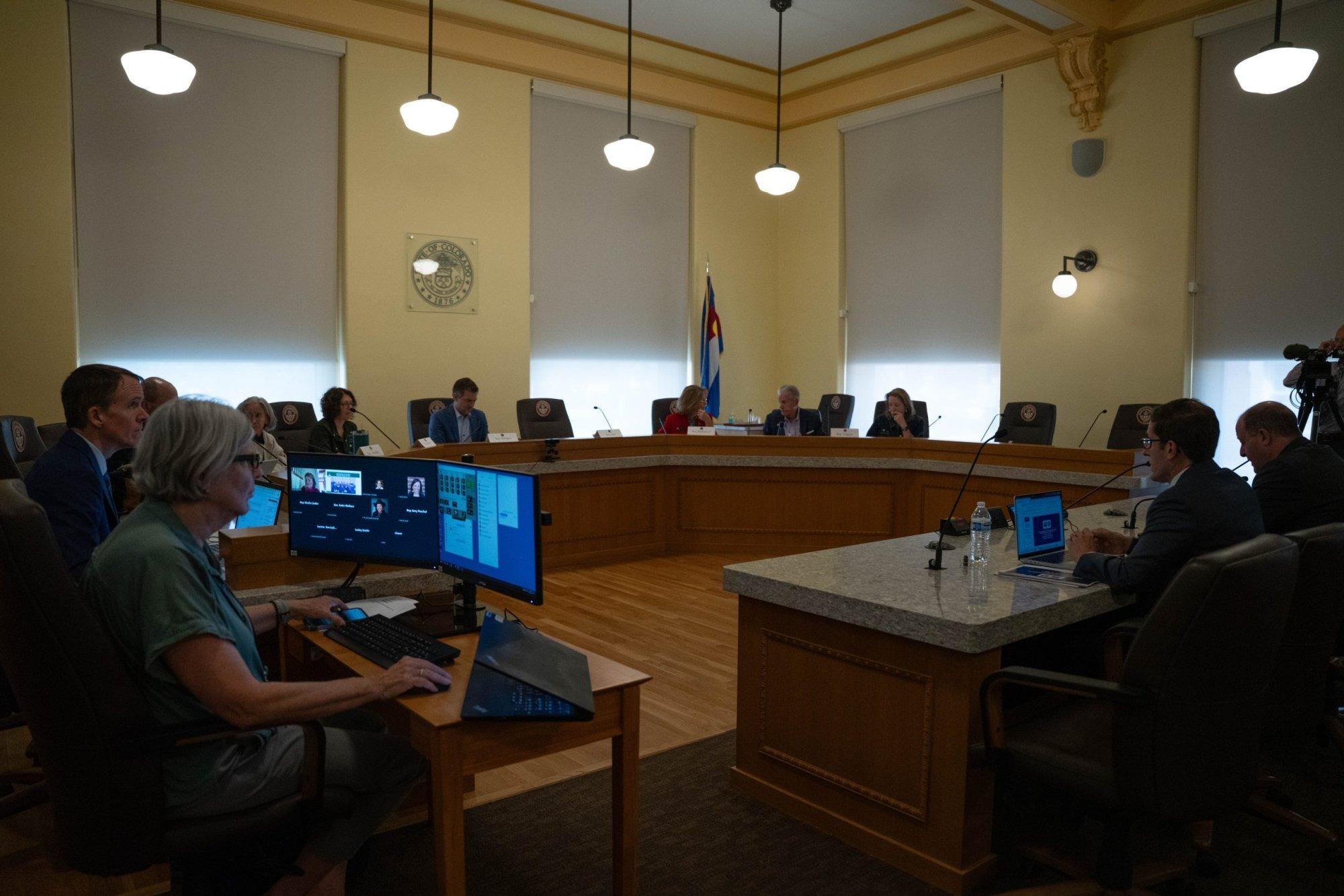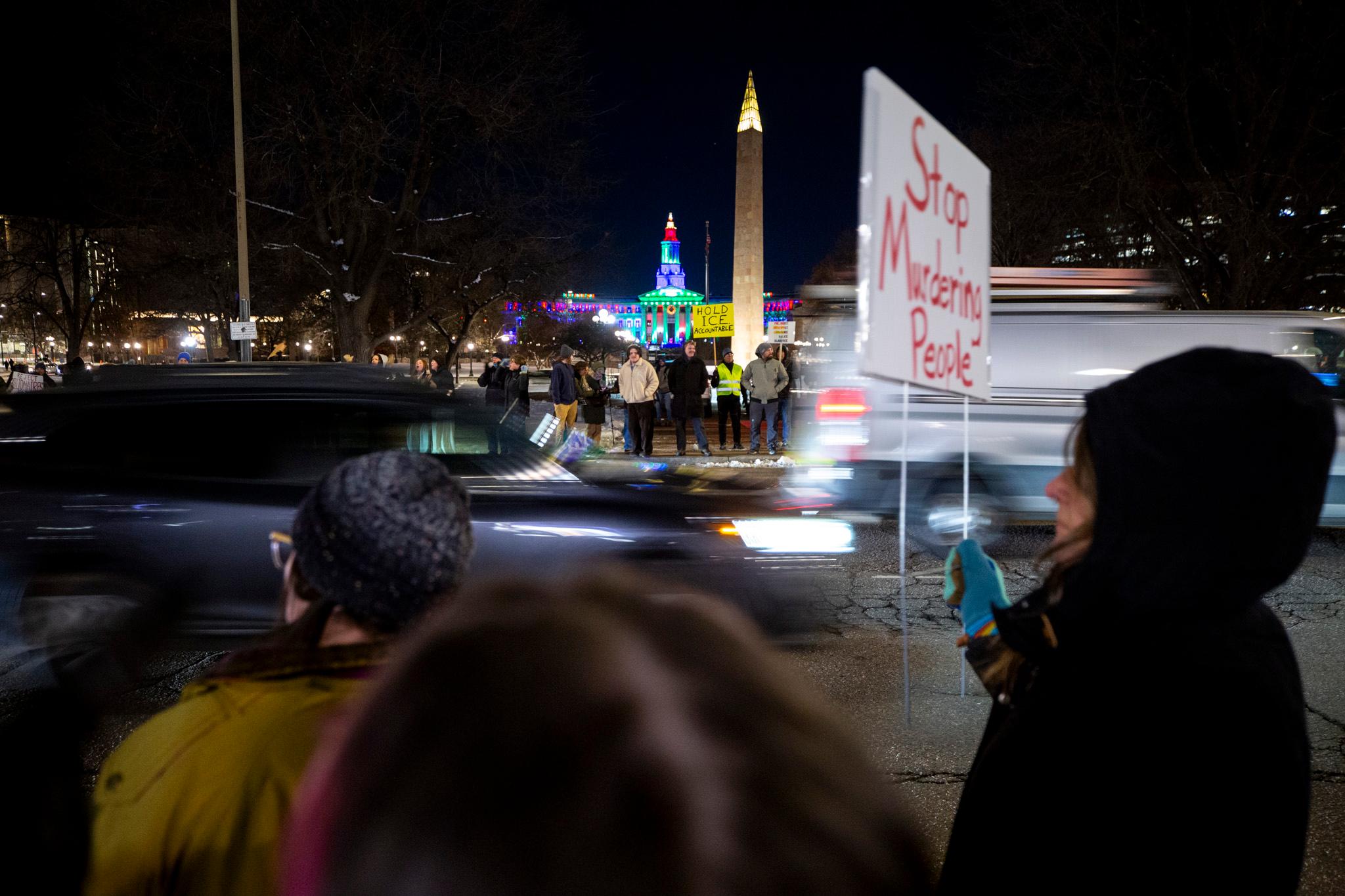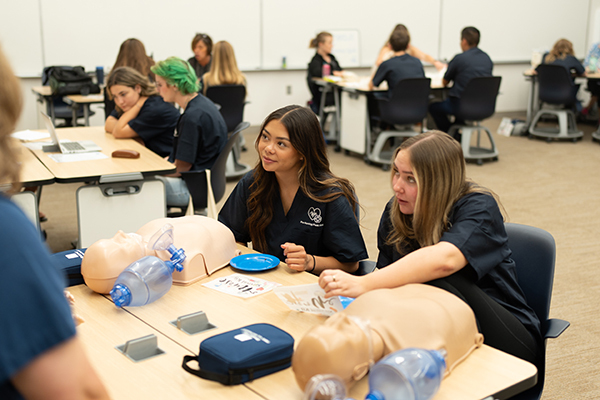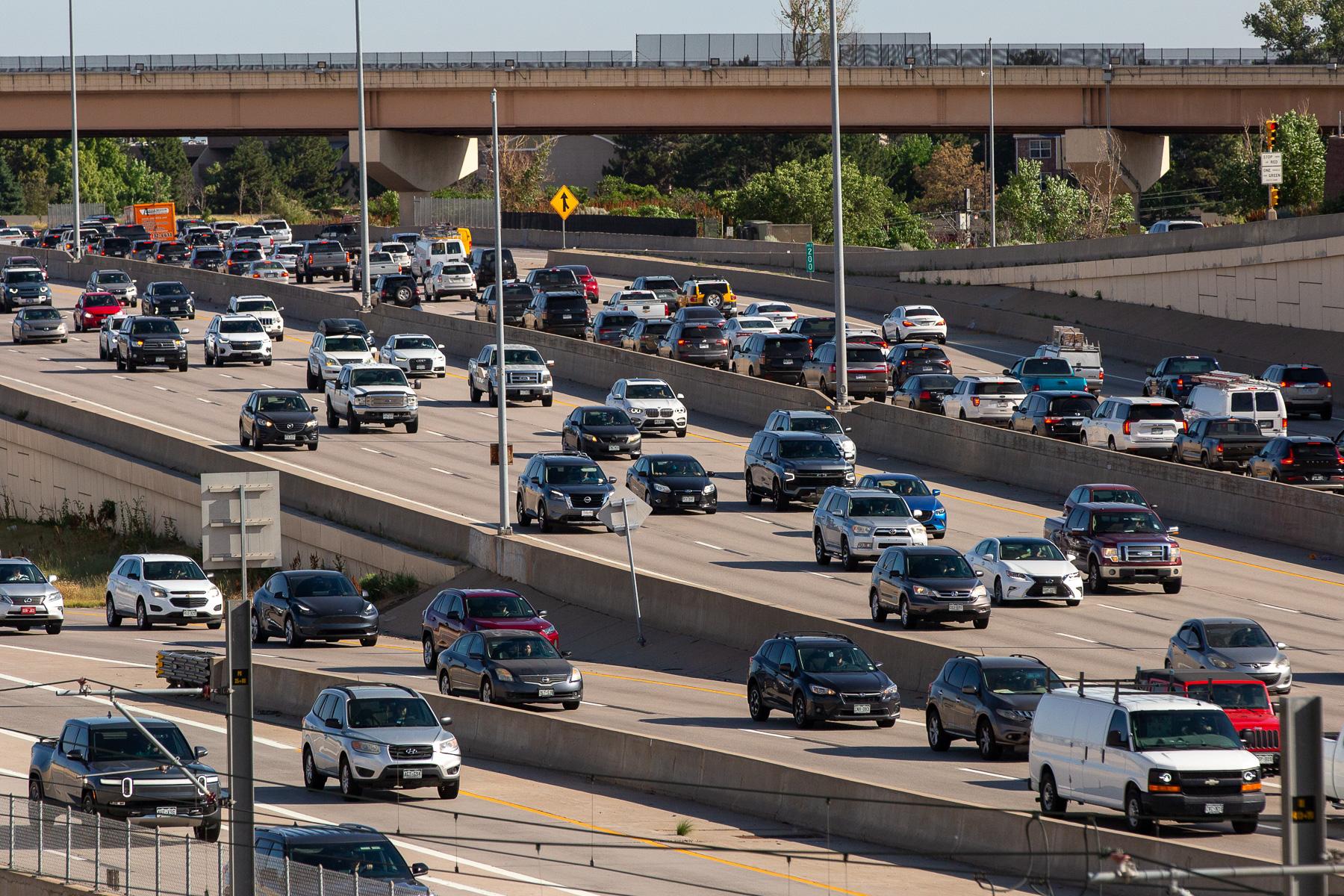
More than half of all calls made to Colorado State Patrol are tied to hostile conditions on the road.
In 2024, the organization’s emergency dispatchers answered 54,956 total calls. Fifty-six percent – more than 30,000 – were related to road rage or aggressive driving. That figure was up slightly, from 54 percent the year prior.
While the Denver Police Department does not keep a specific road rage metric, a spokesperson for DPD told CPR News that estimates do show a steady increase in aggressive behavior. In 2020, they catalogued 198 road rage incidents. Last year, the number was up by 151 percent to 497. Even accounting for fewer people on the roads during the pandemic years of 2020 and 2021, experts say the spike in 2024 is both jarring and worrisome.
Local law enforcement leaders believe the increase is the culmination of personal stress, a changing modern culture and lingering habits from the pandemic.
“I think we have become so tribal and so intolerant of each other that when something happens in an already-inclined-to-be-stressful situation like driving, there’s a percentage of people who resort to a largely emotional response,” said Douglas County DA George Brauchler.
Road rage incidents are widespread – reaching all geographic areas from the suburbs, to urban corridors and even rural towns. Just this month, a young man in a Tesla with no license plates “aggressively” reversed into another driver in Highlands Ranch. The incident made national news, but no one was hurt.
Other local road rage incidents in the state have led to injuries and even death.
In April, a 21-year-old Northglenn man was killed on I-25 between Colorado Springs and Denver. In that case, two cars were driving erratically with behavior consistent with road rage when they hit a third car. Salvador Diaz, a passenger in that uninvolved vehicle, died on scene and several others in the car were sent to the hospital.
“What [drivers] don't anticipate is how quickly things escalate, either because they've misjudged the distance or they've misjudged their anger,” Brachler said.
Colorado outpacing national road rage incidents post-pandemic
The current Consumer Affairs Report ranked Colorado in the top three states in the nation for road rage.
Data show the state has the highest number of violations for aggressive or careless driving or speeding per 100,000 people, at over eight times the national average.
The increase in gun ownership could be part of the boost.
“We have a significant number of people out there who are driving with firearms in their car,” Brauchler said. “So the reaction on the road could be anything from cars colliding, to a fisticuff that takes place on the side of the road, to menacing with a handgun.”
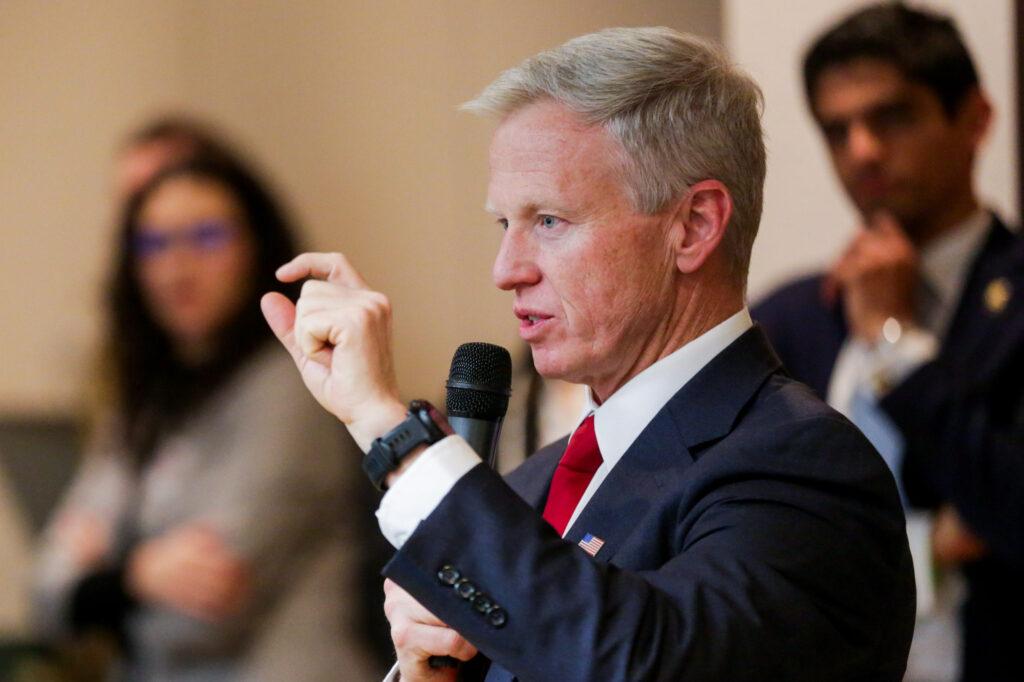
Data from the Gun Violence Archive analyzed by The Trace in 2024 shows there were 149 road rage shooting incidents in the state over the last ten years. That’s roughly 2.9 road rage shootings per million residents — more than double the national average of 1.4 per million.
New habits die hard
Coinciding with the implementation of pandemic lockdown measures, numerous studies have found unsafe driving practices like aggressive driving, distracted driving, and driving under the influence of alcohol all increased.
The problem is – the bad habits people picked up when there were fewer other drivers on the road have not changed as traffic has returned to normal or even – in cities with growing populations like Denver – increased.
According to a recent survey by the Pew Research Center, 63 percent of Americans say people in their community are driving more aggressively compared with five years ago.
What’s the legal punishment for road rage?
Only a handful of states have laws and specific punishments for road rage – and Colorado isn’t one of them.
Drivers involved in a road rage incident, however, can be charged with menacing, reckless driving, harassment, assault or vehicular assault. If shots are fired, murder or attempted murder could be on the docket. But, DA Brauchler does not believe current punishment always fits the crime.
“The consequences for poor driving in the state of Colorado are garbage,” Brauchler said. “The chances of being incarcerated are remote. If you're incarcerated, the amount of time you will actually serve is de minimis.”
Vehicular homicide, for example, is a fourth-class felony, but it's also probation-eligible. Brauchler said the most prison time someone could serve for killing someone with their vehicle is six years in the Department of Corrections.
“And the chances are that person would serve less than a year in jail before being transitioned to community corrections and they'd be out of the system in about two. So if you're looking for some other incentive for people [to stop] acting this way, don't look to the law, it's not there.”
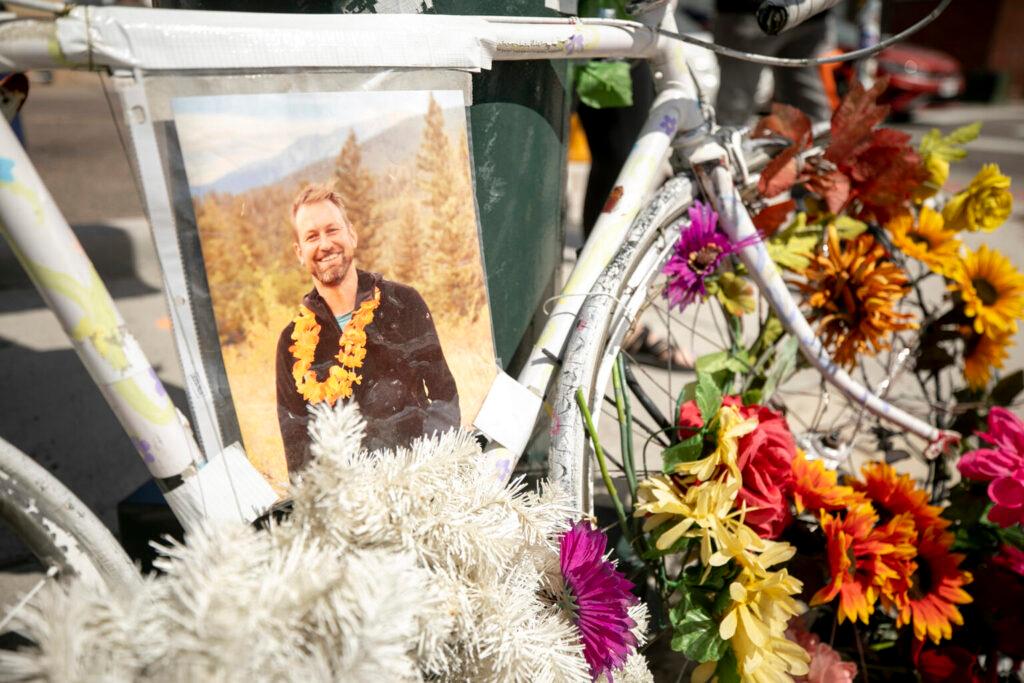
The legislature has recently taken a different approach to the sentencing system in the state with an ideological move towards the idea that longer sentences do not improve a person’s chance for rehabilitation. However, lawmakers did support a bipartisan effort this year to increase the penalty for careless driving resulting in death or serious injury.
Can road rage be fixed?
The world has changed a lot since 2020. Many people are lonely and disconnected, and Brauchler believes this translates to an inability to find humanity while people are driving.
“You don't have to get on the road to see people devalue and treat each other poorly. You can be on social media for three minutes and see that take place, but I don't think that stays on social media anymore,” Brauchler said. “We have to find a way to cure society of this violent response. It wasn't always that way here in Colorado and certainly not America, but we seem to have grown into a place where we're completely comfortable yelling and threatening some of the most horrible things at another human being over what anyone else would perceive to be the most minor of slights. We have to solve that problem. And that's not a ‘behind the wheel’ problem. It just shows up behind the wheel in a more dangerous way.”
He wants people to continue to report dangerous driving, but hopes it’s done with the intention of keeping people safe, not with revenge. “The idea that ‘this guy has wronged me on the road’ and it's not about the safety of others, it's about ‘I'm going to get you in trouble,’” Brauchler said.
“When someone cuts you off, tailgates, or flies by you at the speed of a cheetah, you may be tempted to react,” said Colorado State Patrol Chief Matthew Packard. “Your best response is to keep a level head and your distance. Let the aggressive driver move on, and do not engage.”
If you witness aggressive driving while on the road, you’re encouraged to find a safe spot to pull over and then contact the Colorado State Patrol by calling *CSP (*277).
Witnesses should be prepared to provide the following information: vehicle description, license plate number, location and direction of travel, driver description, and the driving behavior being demonstrated.
Funding for public media is at stake. Stand up and support what you value today.

